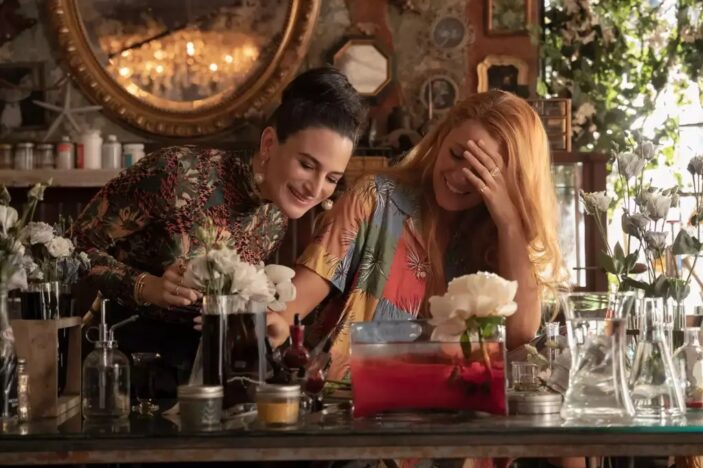
Whilst by no means is Justin Baldoni‘s It Ends with Us making light of its central domestic violence thematic, Christy Hall‘s script adaptation of Colleen Hoover‘s novel is unable to entirely find the momentum needed to keep such a story emotionally engaging across its testing 130 minutes.
With its Pinterest-like lens on romanticising its Boston setting, the flower shop locale of its lead character – the unironically named Lily Bloom – and her subsequent wardrobe porn aesthetic, It Ends with Us will undoubtedly appeal to the social media-heavy audience that made Hoover’s novel such an initial success; though penned in 2016, it wasn’t until a 2021 surge on the #BookTok community on TikTok that it garnered considerable traction.
It’s also that audience who are likely to devour the melodrama of Baldoni’s “romantic” effort, where only occasionally does it truly land with emotional heft regarding its violent throughline which highlights the ease of emotional manipulation and gaslighting within a relationship; the aforementioned Lily (Blake Lively, once again utilising her effortless charm and likeability to overcome the questionable dialogue) and her courtship-cum-marriage to the volatile Ryle (Baldoni) placing as the story’s main focus.
When we first meet Lily, she’s trying her best to feign an appropriate reaction at her father’s funeral; her mother (Amy Morton) asking her to merely recite five things she liked about him as a way to appease the reality that she has very few fond recollections of him. His abusive nature is one that scarred her childhood, and it’s why when Ryle shows such inclinations that she’s torn between staying with him out of love or leaving as to not repeat the cycle.
Of course, before Ryle hits her out of frustration, the film does its darndest to make us swoon over him. He’s appropriately attractive in a daytime-soap-opera-actor kind of way, he’s a surgeon, he’s evidently wealthy, and he has a loving relationship with his sister, Allysa (Jenny Slate, saving the movie with her infectious delivery whenever she’s given the chance). As much as the film wants us to ship Lily and Ryle though, the inclusion of her teenage love, Atlas (Brandon Sklenar), adds the expected theatricality we’d expect from such a story.
Atlas, whose background attachment to Lily takes up perhaps a bit too much of the film’s overall running time, is clearly the right choice when it comes to who she should truly devote herself to, but, despite appropriately highlighting the rugged handsomeness of Sklenar, his character never feels as useful or as impactful as he truly should. What does prove rightfully impactful though is when Hall’s script isn’t afraid to highlight the ugliness and brutality of what it is to be in a relationship blurred by abuse. Whilst so many sequences of Ryle’s violent nature feel brushed with lighter strokes – perhaps in a bid to not alienate the teen female audience – the singular moment committed to legitimately demonstrating his terror is when the film feels alive with an unnerving temperament that should resonate with anyone who has ever been a victim of such.
A film that wants to have something specific to say just as much as it wants to prove universally appealing, It Ends with Us can’t entirely escape its exaggerated disposition. The inherent affability of Lively means we will continually barrack for her well-being, and it can’t be denied that the audience that made Hoover’s initial words such a success are likely to lap up such mawkishness, but there’s a deeper, darker iteration of this story that could – and should – be told.
![]()
![]()
![]()
![]()
![]()
TWO AND A HALF STARS (OUT OF FIVE)
It Ends with Us is now screening in Australian theatres.
